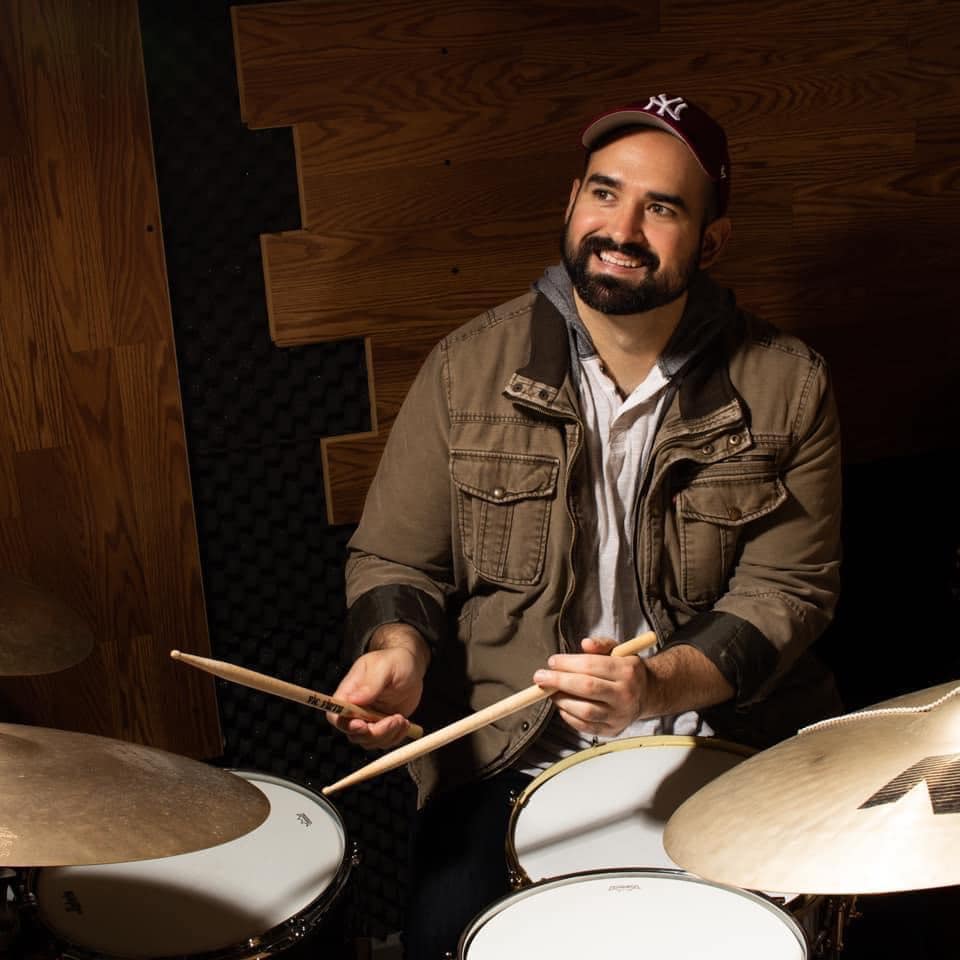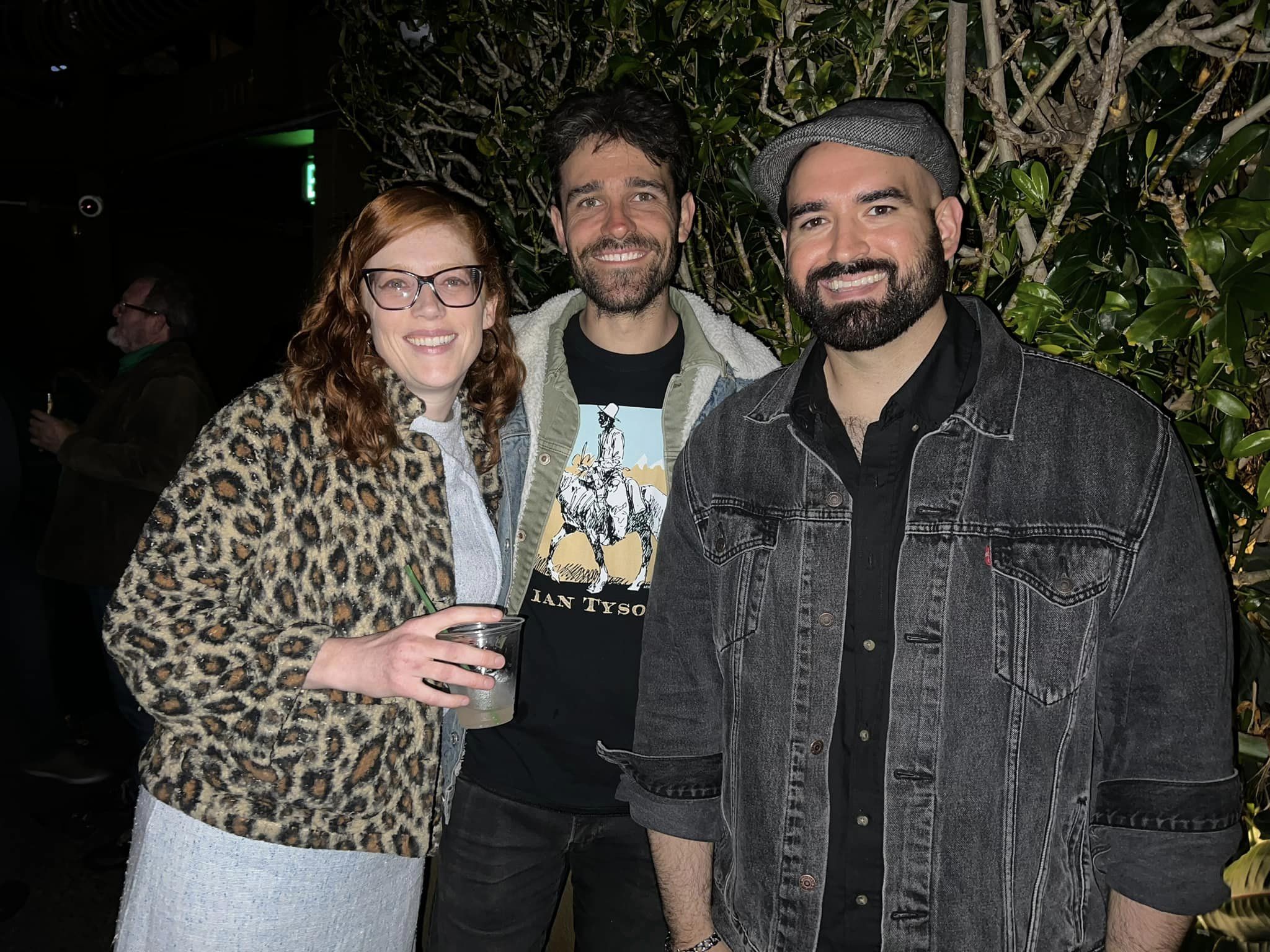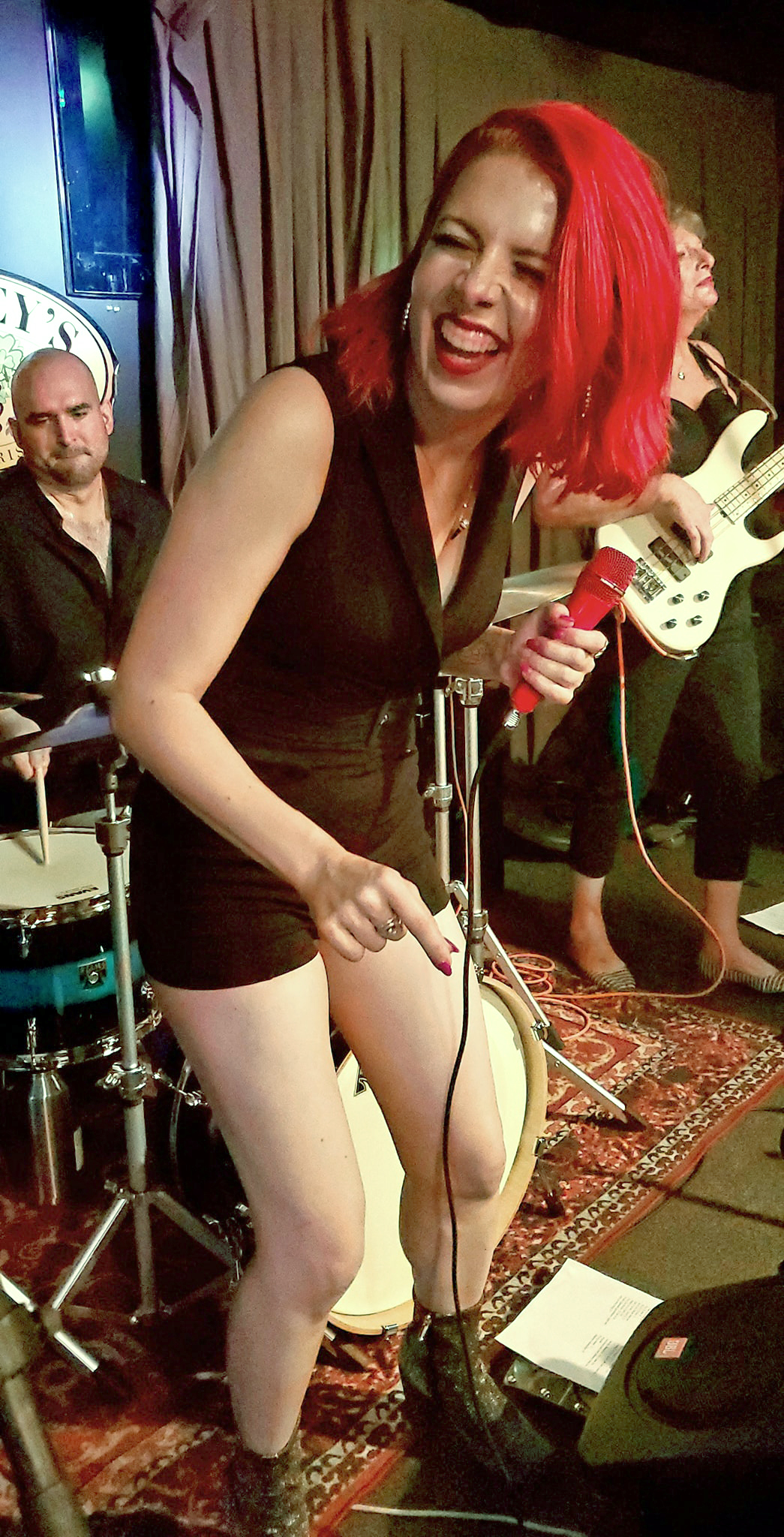Featured Stories
Tony Econom: Back to his Roots

Drummer Tony Econom
Drummer Tony Econom is back in San Diego County, a place where he has roots, where he spent part of his childhood.
But that pull is not a San Diego exclusive—not even close.
“I was born in Anaheim,” he told the Troubadour in a September interview. “Anaheim, San Diego, Tijuana, and Guadalajara comprise my upbringing. Probably because of the way I grew up, I have that gypsy thing inside of me, and I’ve lived in multiple places. Austin, Texas, is one of them. The Bay Area is another.
“I live in the Ramona area now. I’ve been back from Austin about a year, after spending three years there. I went to go visit and I just fell in love with the live music—the original music aspect of things. Coincidentally, I met an artist in San Diego from Austin, Jo James, and I got to play with him. When the pandemic hit, he kept urging me to move out there, and I was like, ‘Why not?’ He’s originally from California, and he’s just killing it there.”
Econom was 14 when his family settled in Chula Vista. His family was musical, he recalled. “Not professional musicians, but definitely a very musical household. I have my mom to thank for the drum part. My dad was a guitar player in church. My grandpa also lived with us, and I have to thank him for many of my drum influences. He was born and raised in Brooklyn in the 1930s and ’40s, and he introduced me to all the Swing Era drummers like Gene Krupa and Buddy Rich.”
He was already playing music when he arrived in San Diego County, but this is where he began to cut his chops professionally.

Econom with Stacey Antonel and Sam Hunt.
His first instrument was violin, through the elementary school orchestra at age seven.
“Right around middle school is when I took up drums. My parents got me a set for my 13th birthday. What did it for me on the drums was the ‘Pink Panther’ theme—that’s what got that jazz worm in me.”
Econom didn’t have any lessons on violin outside of the in-school instruction. The only private lessons he ever had were on snare, when he joined the marching band at Eastlake High, and that only lasted a few weeks.
“The majority was self-taught, I guess.”
It was in high school that he earned his first paycheck from playing music, too.
“I did a corporate event in high school. I must have been a sophomore in high school. The drum line just had to show up and play second-line stuff for about five minutes, and I made around $100 or something.”
After graduating high school, he majored in jazz studies at New York University but dropped out before graduating.
“Around age 20, I started attending Southwestern College and that’s when I got into audio engineering. It was just really wanting to record music, to make my own music or bring my bands into the studio. What really pulled me in was how passionate the instructor, Jay Henry, was. What also helped was that he was from New York—one theme in my life is that I’ve been surrounded by New Yorkers! He ran that studio like a kitchen almost.

Econom with frequent collaborator Whitney Shay.
“My goal at first was to just start taking a few classes. In the end, I wanted to be the lead engineer running that studio, and that’s what happened. I got my associates degree in audio engineering. I’m working on my bachelor’s in cybersecurity right now at Western Governor’s University. I should be done in about a year.”
While he’s not doing as much studio engineering now as he was, Econom says he still has a little studio in Chula Vista that’s soundproofed so he can record all night without disturbing the neighbors. He can also use that space to add drums to songs other artists hire him to play on.
Drumming is his focus right now—specifically, drumming with his band Bulbancha YaYa.
“That’s a very recent thing. I think I only started performing with that group about six months ago. It’s a New Orleans-themed outfit. It’s a rotating cast. I do that to keep the audience coming, and to keep myself on my toes. It’s always different every time; the tunes can range, the players bring something new. We don’t have rehearsals. Many times, the members are meeting themselves together for the first time on stage!”
As for his own gear, Econom says he’s downsized a bit.
“I probably have somewhere around seven drum kits. The cymbals, I probably have 40 cymbals and maybe 20 snare drums. That’s the real problem—they’re a little bit cheaper than a drum kit.”
But he’s just signed a new sponsorship deal with a cymbal manufacturer, so that collection will be thinned out soon, too.










